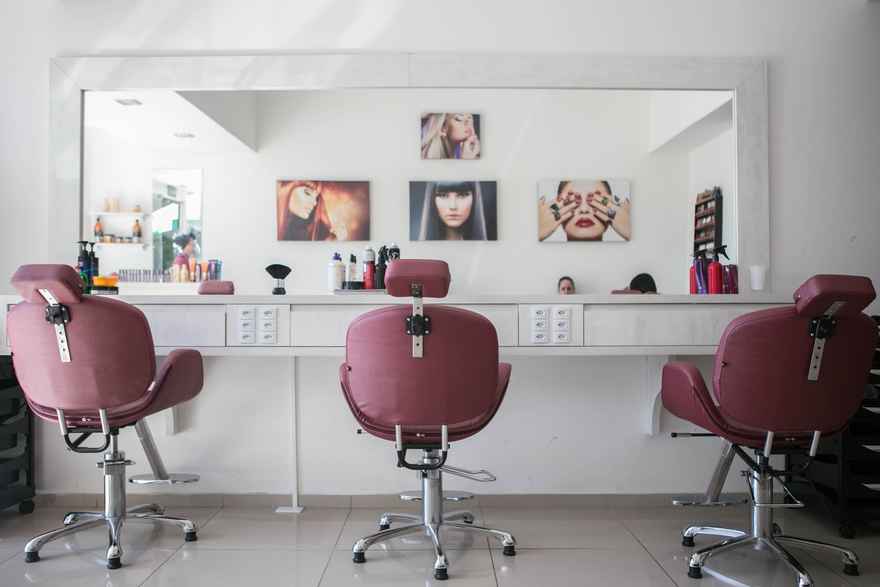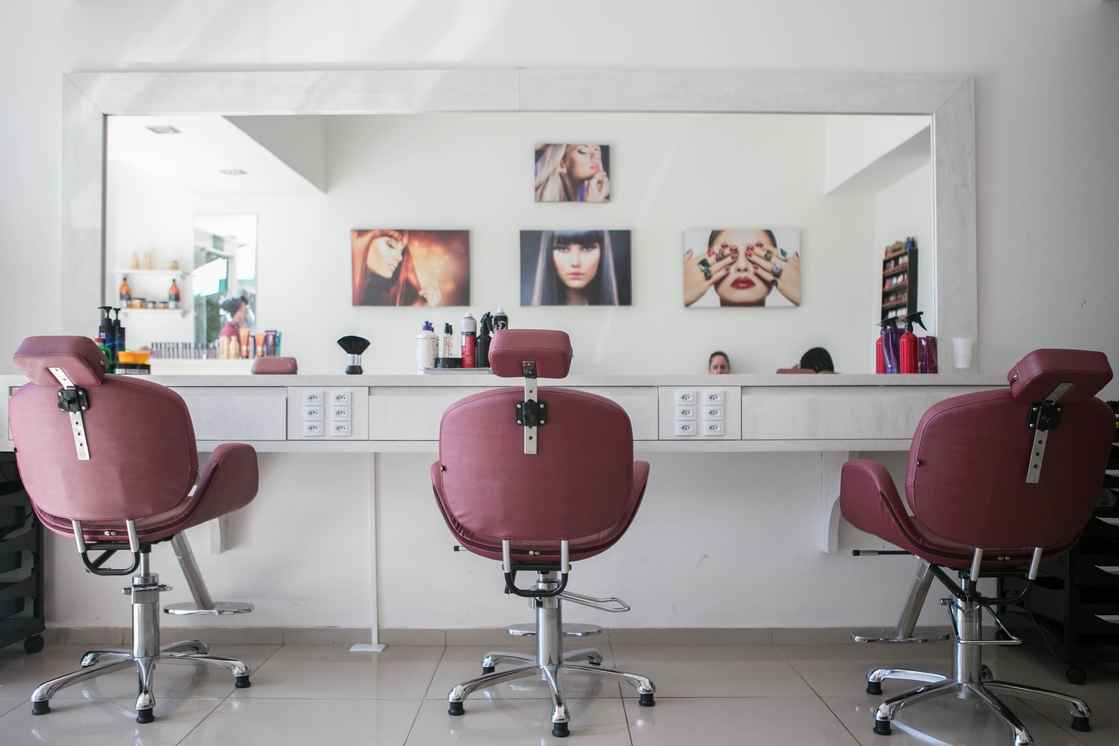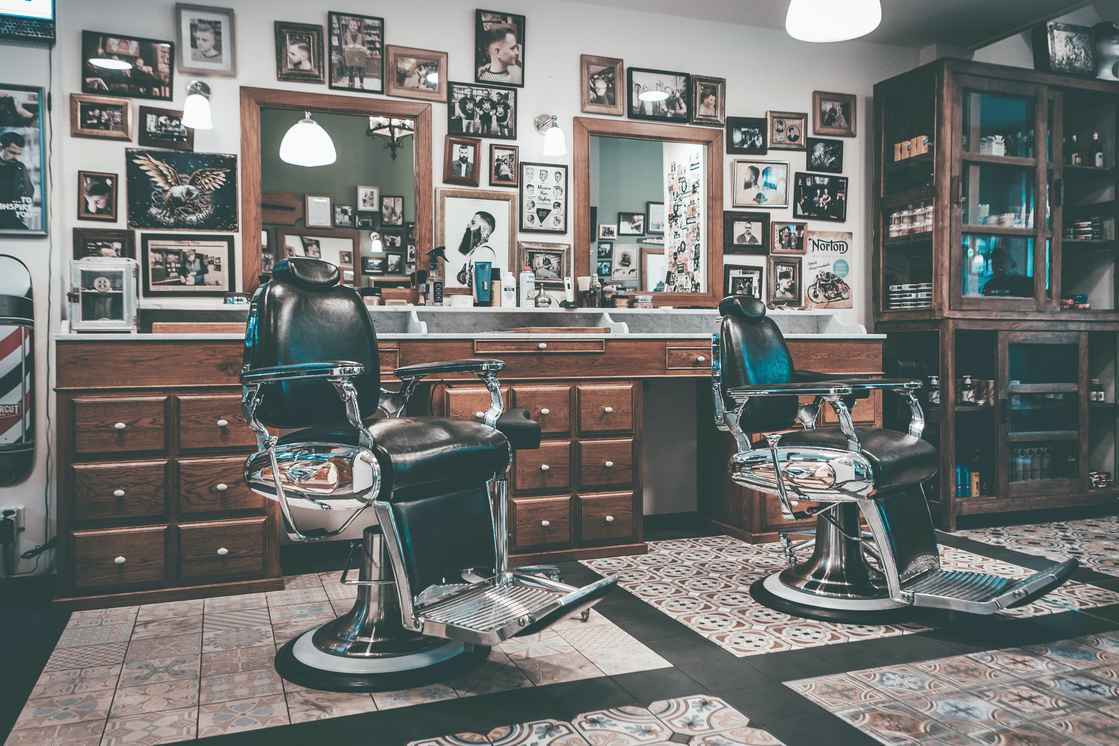Don't Get Caught Out With Your Chair Renters...

HMRC are cracking down on employees 'disguised' as chair renters and are coming down hard on the salon owner. Read this blog so you don't get caught out!
With the rising costs of running a salon with employees as well as the added worries of covering wages, NI, VAT, stock as well as the thought of having your team off sick or on maternity, it's no wonder that more and more salons are moving to chair rental models.
It's so important that you get your setup correct, as HMRC are looking at our industry as many owners are treating their chair renters as employees, but without paying PAYE, NI and holiday pay. This blog should help you to stay on the right side of the law and stay out of trouble with HMRC!
Always keep in mind, chair/room renters are running their own business inside of your premises - they are an 'independent contractor'
Below is the full lowdown on what does and doesn't constitute a chair/room renter. I'll highlight the parts which I think are most overlooked by salon owners with renters but please see the full guidelines below!

- The salon owner and chair/room renter both exclusively have control of their own business, one does not control the other
- Each party must keep their own accounts, pay their own taxes & health and safety, deal with their own clients and complaints
- Each party must have their own, separate insurance in place
- Your chair/room renter can chose when to work, what to wear, which products to use and stock and set their own prices
- Your chair/room renter should be free to work or not work as they see fit and have access to the premises to work whenever they want
- You should have a rental agreement which clearly lays out what is provided by the salon and at what cost
- You must choose whether to offer your chair/room renter a fixed daily/weekly rent or a % split of takings/profits. Keep in mind that they can work as much or as little as they like when you decide how to charge them
- If you collect your chair/room renter's takings, remember that this will count as your turnover in relation to VAT, and if these takings take you over the VAT threshold, you will be liable to pay VAT on the total of your takings
- Remember that not every rule below needs to be broken for HMRC to deem your chair/room renter as a 'disguised employee', and some points hold more weight than others when it comes to HMRC's decision
- If it is deemed that your chair/room renter is in fact a 'disguised employee', they can backdate money owed for tax, NI and VAT if their takings would have taken you over the VAT threshold so it is imperative that you ensure you follow the guidelines below as closely as possible

Definition of ' Independent Contractor'
Independent Contractor - a self employed person who provides an independent hairdressing and/or beauty therapy service to the general public from within a salon owned and operated by another person or company.
Intent and general principles
To establish a business relationship other than that of employer and employee with the intent by the parties concerned to control their own actions and destiny through observance of the following basic principles:
- Both the salon owner and Independent Contractor should have ultimate control and authority over their respective businesses and be identified as having such authority.
- Each party to be responsible for the finances of their respective business, and to reap the rewards and losses from their own business.
- Neither party to be solely obligated to - or rely or depend upon - the decisions of the other.
Guidelines
These guidelines support the above and will be used to interpret the intentions and principles of the salon owner and Independent Contractor against their established working practises and procedures. The Guidelines are not exclusive but are indicators of the type of relationship that exists.
1 Status
- The Independent Contractor within a salon should be self-employed. An employee cannot establish an independent business within the establishment of the employer.
- The business of the Independent Contractor should be independent of, and separate to, that of the salon and:
- Maintain its own books and keep its own accounts;
- Be responsible for its own taxation affairs and health and safety procedures;
- Attend to its own insurance requirements, including public liability insurance;
- Be capable of suffering losses (negative profit) as well as enjoying profits;
- Have complete freedom to establish its own price structure and times of opening (including closure for holidays);
- Purchase consumables, stock and products from any source, and sell any product range;
- Be able to compete openly for clients both inside and outside the salon, and to accept or reject clients at will;
- Be free to appoint locum tenens (someone to replace them at work) as the need arises;
- Be free of restrictions about the sale, disposal or relocation of the business;
- Display a notice giving the name of the Contractor and address at which documents may be served as required by Section 4 of the Business Names Act 1985;
- Respond to actions brought against it by third parties;
- Have its own stationary for business letters, written orders, invoices and receipts.
2 Access
- Ideally, there would be separate access to that part of the salon in which the business of the Independent Contractor is situated.
- The Independent Contractor to have access to their business at all times and have the ability to be open for custom at any time of their choice.
3 Clients
- The clients should be in direct contract with the Independent Contractor and be fully aware of this fact.
- Complaints and claims from clients of the Independent Contractor should be directed to the Independent Contractor and not the salon.
- Separate appointments (where applicable) should be maintained by or for the Independent Contractor.
- Casual clients entering the salon should themselves choose whether to patronise the Independent Contractor or salon, and should have sufficient information to make such a choice based on:
- The name(s) and possibly portraits, displayed in the reception area;
- An identifiable list of specialities and price lists displayed in the reception area for each chair/room renter;
- The times to wait before receiving attention.
5. The details, records, and addresses of clients who receive attention from the Independent Contractor to be the property of the Independent Contractor.
4 Money
- The money received from clients attended by the Independent Contractor to be the property of the Independent Contractor, whether or not it is taken centrally.
- Money collected centrally should either be handed over to the Independent Contractor or paid into an account held in the name of the Contractor.
- Money held for and on behalf of the Independent Contractor, and the salon holding such funds should account to the Independent Contractor for those funds.
IMPORTANT NOTE: If the salon collects money on behalf of the chair/room renter, that income will contribute to the salon turnover and therefore will be liable for VAT if it takes the salon's turnover over the VAT threshold, even if the money is then paid to the chair/room renter.
5 Salon environment
- The salon should not exercise control over the Independent Contractor, or impose upon the Independent Contractor codes or standards relating to hygiene or behaviour unless applied equally against all parties with observance measured by an independent authority or peer pressure. Safety regulations imposed on the Independent Contractor by the salon should be no more than that required to comply with current legislation.
- The Independent Contractor to be responsible for the conduct, appearance and presentation of the Independent Contractor's enterprise, and in particular for behaviour, hygiene and safety matters relating to, or arising from, the Independent Contractor's activities.
- There should be clear agreements in respect of services provided by the salon including:
- the provision of telephone, heat, light and water;
- available accommodation for clients;
- reception, appointment booking and cash handling facilities;
- use of salon personnel for specific duties and the control and discipline arrangements for such personnel;
- use and availability of furniture, fittings and equipment;
- laundry services;
- marketing and promotion of hairdressing services;
- cleaning and washing of floors and equipment;
- access and security;
- the amount to be paid by way of rent for use of space;
- the amount to be paid for use of services, cleaning and maintenance of communal areas or how such charge is to be calculated.
6 Agreement
- There should be a clear agreement in writing between the salon and the Independent Contractor that accurately reflects actual working practice.
- There should be a clear statement in respect of the term of the agreement, and the obligations and responsibilities of the parties on termination, notice required on termination and where that notice is to be served.
- That VAT is to be levied (when applicable) on the charge paid by the Independent Contractor for the services provided by the salon.
- The Independent Contractor is responsible for insuring the enterprise against public and product liabilities, losses that could arise as a result of theft, fire, storm, accidental damage etc, and statutory cover in respect of staff retained by the enterprise.

[Important note: Not all of the guidelines have to be met in any given situation. They remain what they are called, guidelines. They are indicators of the type of relationship that exists and some (like employment status of the stylists; the agreement between the parties - whether spoken or written, and the way the money/takings are handled) will carry more weight than others. In any event, you should always read them in conjunction with the foregoing guidance on hairdressing, in particular VTAXPER68600.]
I hope this helps!
You're welcome to join my FREE Boss Your Salon Facebook group! Let me know if there are any other topics you'd like me to cover in a blog post, email me anytime using the contact page.
Maddi x

0 comments
Leave a comment
Please log in or register to post a comment